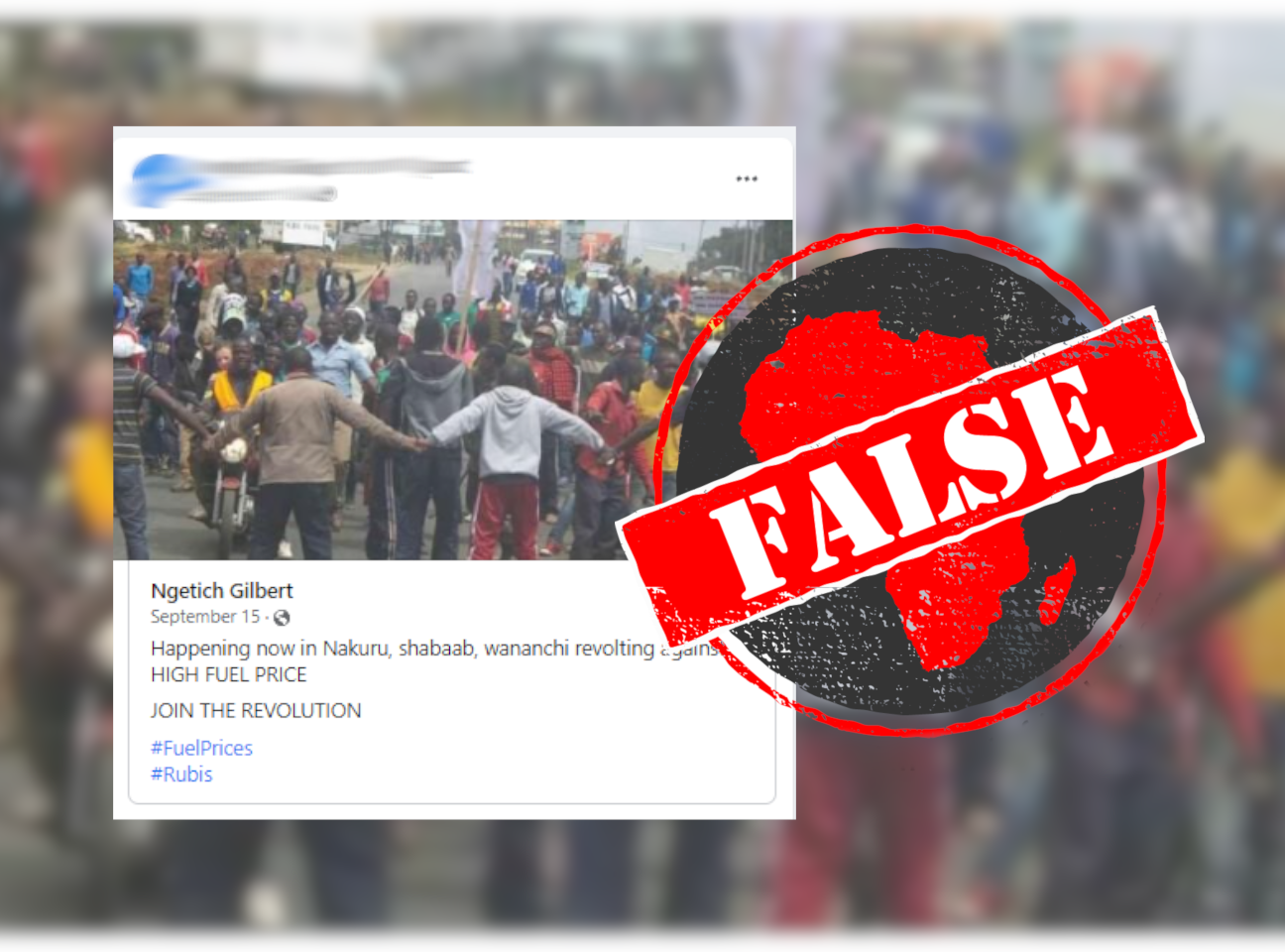A photo has been shared on Facebook and Twitter with claims that it shows residents in Nakuru, Kenya protesting against high fuel prices.
The caption to the photo, published on 15 September 2021, reads: “Happening now in Nakuru, shabaab, wananchi revolting against HIGH FUEL PRICE. JOIN THE REVOLUTION.” The Kiswahili word “wananchi” means “citizens”.
The photo shows a crowd of people, some holding hands, standing in the middle of a road, blocking it.
On 14 September, Kenya's energy and petroleum regulator revised the prices of petrol products, causing a public uproar.
But does this photo show Kenyans protesting against high fuel prices in 2021? We checked.

Old photo, unrelated
A TinEye reverse image search revealed that the photo was old. We traced it to an article published by the Star newspaper on 6 June 2016.
The caption to the photo reads: “Cord supporters from Kibera in Nairobi county during demonstrations for the forceful removal of commissioners at the Independent Electoral and Boundaries Commission, June 6, 2016.”
The photo is credited to Collins Kweyu, a photojournalist based in Nairobi.
The Coalition for Reforms and Democracy (Cord) was an alliance of opposition political parties that contested the Kenya general elections in 2013.
The protestors in the 2016 photo were allegedly demanding the firing of members of the electoral commission before Kenya’s 2017 general election.
The photo does not show people protesting high fuel prices in 2021.
Republish our content for free
For publishers: what to do if your post is rated false
A fact-checker has rated your Facebook or Instagram post as “false”, “altered”, “partly false” or “missing context”. This could have serious consequences. What do you do?
Click on our guide for the steps you should follow.
Publishers guideAfrica Check teams up with Facebook
Africa Check is a partner in Meta's third-party fact-checking programme to help stop the spread of false information on social media.
The content we rate as “false” will be downgraded on Facebook and Instagram. This means fewer people will see it.
You can also help identify false information on Facebook. This guide explains how.


Add new comment